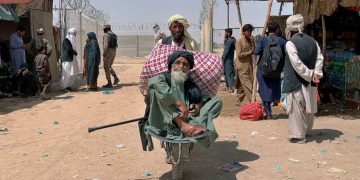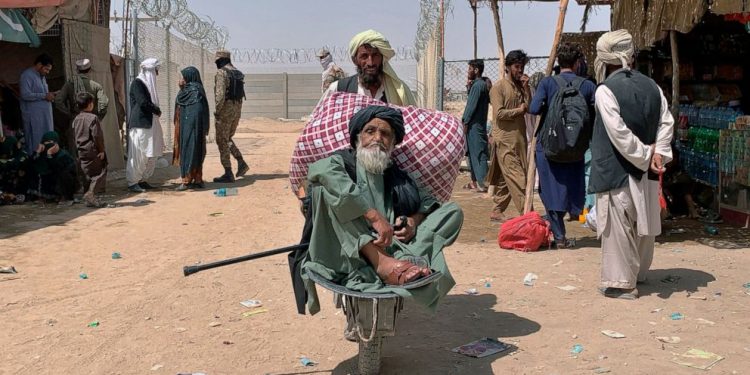By Ebi Kesiena
The first batch of Afghan evacuees fleeing the Taliban takeover has arrived in Uganda, a development that has raised security concerns among some Ugandans about their country’s security.
According to reports, they will receive temporary refuge before relocating to the US.
A statement by the authorities of Uganda stated that a group of Afghan refugees including men, women and children has been transported to Uganda in a chartered flight. Kampala gave no more details on the identities of the evacuees. It is the first batch of the 2,000 Afghan refugees expected to be resettled in Uganda.
“The Government of the Republic of Uganda this morning received 51 evacuees from Afghanistan who arrived aboard a privately chartered flight at the Entebbe International Airport,” the statement said.
Their arrival follows a request from the US government to temporarily host “at-risk” Afghan nationals and others who are in transit to the United States and other destinations worldwide.
The US embassy in Kampala thanked Uganda for its “generosity and hospitality toward these communities”.
However, some Ugandans fear that the presence of Afghan refugees could spark attacks from Taliban sympathizers and Islamist militants like Somalia’s al-Shabab. In July 2010, at least 74 people were killed in twin bombings in the capital Kampala. Al-shabab claimed responsibility for the attack which was the worst in East Africa since the 1998 US embassy bombings in Kenya and Tanzania.
Later in 2014, President Yoweri Museveni sent troops to Somalia to join the AU peacekeeping mission and Kenyan forces battling al-Shabab insurgents. Since then the East African nation claims to have foiled several terrorism plots.
Professor Mwambutsya Ndebesa, a historian and lecturer at Makerere University in Kampala, told the media that Uganda could attract unwanted attention from terrorist groups by hosting Afghan refugees.
“Afghan refugees may turn the attention of international terrorist groups such as al-Qaeda, al-Shabab, and ISIS to Uganda and destabilize the country,” he said.
Apart from the fears of a terrorist attack, some Ugandans like Francis Babu, a politician and former legislator in the Ugandan parliament, are not pleased with his government’s decision because of what it could mean for the new Afghan rulers. He is worried that the deal hatched between the United States and Uganda’s President Yoweri Museveni to host the Afghan refugees could dent relations between Afghanistan and Uganda.
Babu also believes that the US is eminently better-suited to take in the evacuees.
“If you think about America having 50 states, some of these states are bigger than Uganda. Suppose you took the 50 states and divided them into 2,000 people; each state would take 40 people. I wonder why Uganda should accept to take 2,000 people,” he said.
But Uganda’s Minister for Housing, Chris Baryomunsi, says the government will not be constrained by the Afghans’ welfare since the US will take care of their expenses for the three months they will be in Uganda before they are relocated to either Canada or the US.
“Right now, we have over 1.6 million refugees here in Uganda. So when we received the request, and from a moral point of view we could not refuse because we have to support humankind.
“We shall support them for the short time that they will be here before they proceed to their destination,” he stated.




































